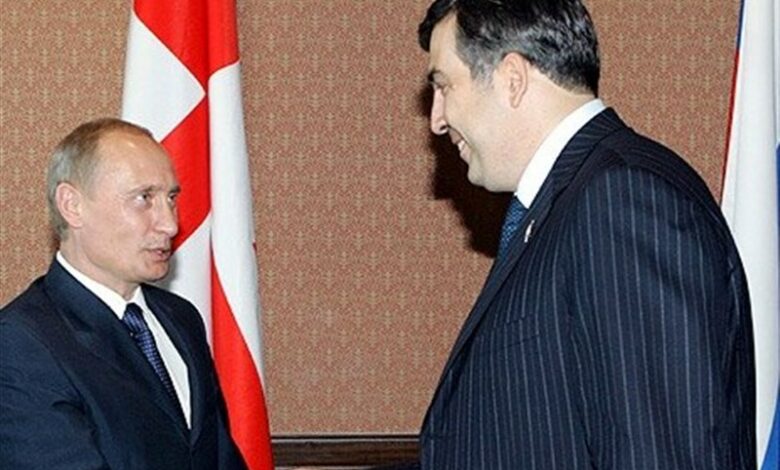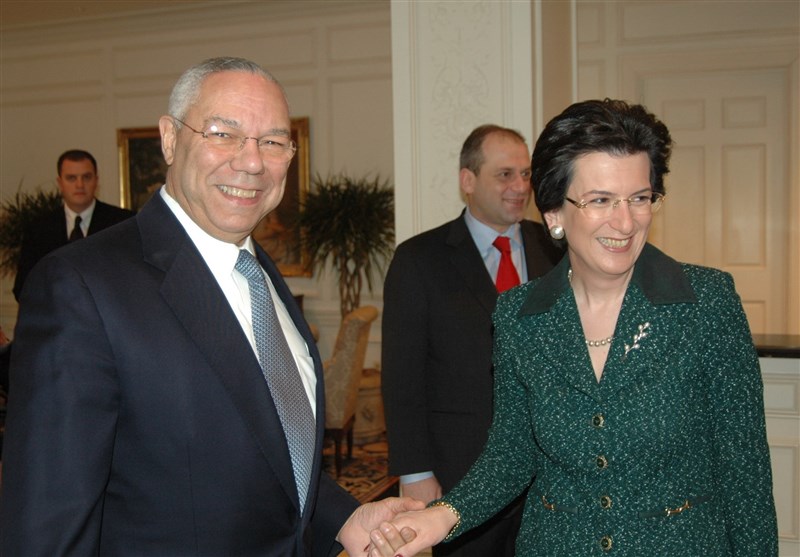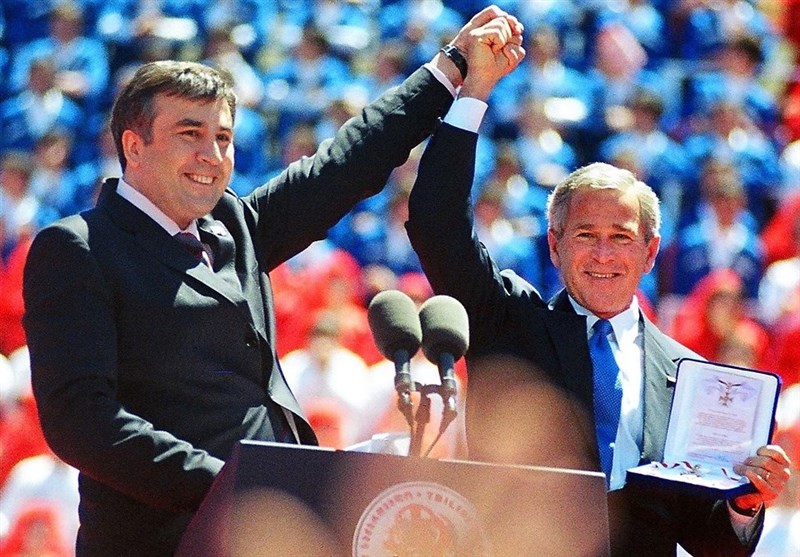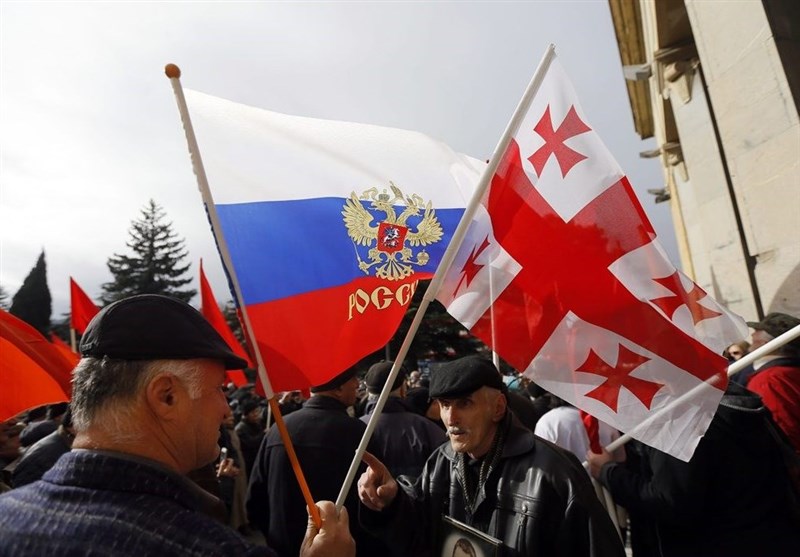Georgia from the inside The foundation of the first color revolution – the final part

| In 2003, the Russian leadership still trusted Washington and expected constructive relations between the two countries, so the idea that a pro-American politician could be in power in a neighboring Russian republic did not bother the Kremlin much. |
According to the international group Tasnim News, “Rose Revolution” is the first of a series of color revolutions. In the newly formed republics of the post-Soviet space, the innovation of street actions and customized press campaigns described by Jane Sharpe was tried more than once in other republics of the former Soviet Union, but they did not bring peace and prosperity to any of those countries, according to the documentation. And the field realities did not bring to Armaghan.
Russia’s role
Shevardnadze has no choice but to turn to Russia did not have to help; On the night of November 23, Russian Foreign Minister Igor Ivanov entered Georgia on an emergency visit at the request of the authorities. According to the plan of the Georgian leadership, the official of the Russian Foreign Ministry was supposed to appear as a mediator in the negotiations with the opposition and help Shevardnadze to retain power, but these hopes did not materialize. Moscow was well aware of old grievances, including Tbilisi’s reluctance to fight Chechen militias that had settled on Georgian soil in 2002.
The Russian government actually tried to distance itself from events in Georgia, hoping that The new authorities should reconsider the relations with Moscow and behave more constructively and accommodatingly, but it soon became clear that this prediction was also an illusion for the Kremlin officials. The fact is that neither before the revolution nor in During the revolution, the opposition did not express any opposition or complaint against Moscow and limited themselves to the internal agenda, i.e. socio-economic issues, there was not even a statement about resolving the problem of Abkhazia and South Ossetia militarily in the future. The United States and the European Union also chose to ignore this agenda at the height of the protests.
In 2003, the Russian leadership still trusted Washington and expected constructive relations between the two countries, so that The idea that a pro-American politician could be in power in a neighboring Russian republic did not bother the Kremlin much.
When Saakashvili was trying to gain power in Georgia, there was no overt anti-Russian rhetoric and interests. This country did not have it, at that time the politicians of the Kremlin were really committed to dialogue with the West and did not intend to have any conflict with America and the West. Therefore, as soon as Russian Foreign Minister Ivanov arrived in Tbilisi, he first started to negotiate with the leaders of the Georgian opposition. He went and even participated in a rally in the center of Tbilisi. In his talks, Ivanov emphasized to Saakashvili and Barjanadze that the Russian forces based in Abkhazia and Ossetia will not interfere in political and internal protests in Georgia, this matter was more than satisfactory for the opposition leaders.
Ivanov after Negotiations with Saakashvili and his allies in an interview clearly stated: Russia is not indifferent to the fate of Georgia, we are not indifferent to how events develop here, and it is fundamentally important for us that all processes are carried out within the framework of the constitution and within the framework of the rule of law. And there is no issue that cannot be resolved through dialogue and compromise.
Within hours, Russian Foreign Minister and Mikheil Saakashvili visited Shevardnadze at the Kertsanisi residence (Shevardnadze’s personal residence on the outskirts of Tbilisi), many negotiations. It didn’t take long, the same evening, the president of Georgia publicly announced his resignation.
“I’m gone,” Shevardnadze told several reporters outside his former residence. When Shevardnadze was asked where he was going, he simply replied, “Home,” and this was the culmination of the largest protests in the history of Georgia.
A few months later, on January 4, 2004, Early presidential elections are held in Georgia, and as expected, Mikheil Saakashvili won the fourth presidential election of Georgia with a record 96.2% of the votes. He canceled the parliament in which the Shevardnaze party had won. Nino Barjanadze, the Speaker of the Parliament, became the Acting President, from that moment on, the rhetoric of the new and revolutionary authorities of Georgia took on a strong anti-Russian character.
Exactly one week later, the leadership of Georgia with the support of the United States The United States and Foreign Minister Colin Powell personally asked Russia to immediately withdraw its peacekeeping forces from Abkhazia and Ossetia bases. Solving the issue of territorial integrity of this country through military means directly accused Russia of not wanting to establish new relations with Georgia and weakening its national sovereignty. And foreign military instructors have become regular visitors to Georgia, and since 2005, Georgian troops have regularly been sent to Iraq alongside American soldiers to participate in the Second Persian Gulf War. In April 2008, at a meeting held in Bucharest, Romania, this country received the official support of EU members on the way to join NATO.
After Saakashvili’s decisive victory in the presidential elections, other The sides of the revolution, namely “Nino Barjanadze” and “Zorab Zhovania” received the posts of Speaker of Parliament and Prime Minister, respectively. “Alexander Lomaya”, the director of the local branch of the Soros Open Society Foundation, became the secretary of the Security Council of Georgia, and the executive director of the same foundation, “David Darchiashvili”, took the place of the head of the European Integration Council in the Parliament of Georgia. Western finance again flowed into Georgia, but Georgia did not become more democratic and united when the new government took office; In domestic politics, Saakashvili imitated the authoritarian style of the first president of Georgia, Zoviad Gamsakhurdia, and social and civil liberties in Georgia were severely threatened and faced with severe restrictions.
Only two years after his inauguration. Saakashvili, in February 2005, disagreements and conflicts began in the revolutionary camp, the reason for which was the death of Juania, Saakashvili’s closest ally in the “Rose Revolution”. According to the official version, the prime minister, Zurab Zhovania, died due to a gas leak, but few people believed in this story.
After this accident, new divisions were created in the president’s party. Some of Saakashvili’s former supporters accused the Georgian leader of murdering Juania, who often criticized Saakashvili’s policies in the country’s administration and could be a very important candidate to compete in the next Georgian presidential election.
Protests were growing. In September 2007, mass demonstrations against Saakashvili and his party broke out in Tbilisi, prompted by accusations of Juania’s death and the government’s recent decision to shut down several television channels opposed to the president. severely and without any tolerance, the dissidents were dispersed by the special forces of the army and the National Guard. Over the course of several days, more than 600 people were injured by the actions of the security forces, and these people were only those who went to medical institutions for treatment of their injuries. It had become a place where human rights were not respected even in their lowest level.
Since then, periodic protests have become normal in Georgia. Another wave of these social discontents began during the global financial crisis in 2008, which severely hit the Georgian economy and overshadowed the country’s industrial production and pushed it to the brink of destruction. Political, many of whom ended up in prison, also had a negative impact on Saakashvili’s position and popularity. On the other hand, with the illusion of support from the West, especially the United States, in August 2008, Saakashvili tried to take over the self-proclaimed republics of Abkhazia and South Ossetia. By resorting to force, he restored the political structure of Georgia and started military operations in South Ossetia.
But this action of his did not bring anything other than a humiliating defeat for the Georgian army. Following this action of the Georgian army, Russian military forces intervened under the name of peace enforcement operation to support the two autonomous regions. and the autonomy of these two regions and the separation from the political structures of Georgia became more and more established, which also seriously shook Saakashvili’s position in the eyes of the public opinion and political elites of Georgia.
The end of Saakashvili’s presidency in 2013 came after a devastating defeat in the presidential elections, voters blamed him for violence against protesters, authoritarian governance methods and a new economic crisis, immediately after the defeat in the elections, Saakashvili, the leader of the Rose Revolution, fled to Ukraine and the new authorities accused him of corruption. and abuse of power put them on the list of internationally persecuted people.
People supported the “Rose Revolution”, but very soon the “Rose Revolution” was replaced by policies contrary to human rights and by the baton of the police and torture. .
The events after the overthrow of Shevardnadze and the Rose Revolution clearly showed that revolutions do not always end with democratic changes. Political violence, instability, economic problems and all those things that the main slogans of the Rose Revolution were based on did not materialize and the Republic of Georgia, despite all its efforts, has not yet been able to completely overcome the consequences and events of the Rose Revolution.
Researcher: Mehdi Saif Tabrizi
End of message/+
| Publisher | Tasnim News |





